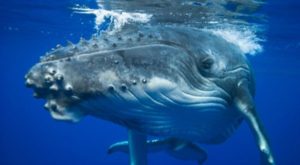Tribe, our planet is not just our home, but also home to 1.3 million species. There are many more species waiting to be discovered, the rough estimate is there can be 8.7 million species on the Earth. Over the years many species got extinct naturally; similar to the extinction of dinosaurs 60 million years ago and then many new species evolved.
However, the recent extinction of species is the effect of man’s invasion in nature’s business. Humans are the most intelligent species on the Earth but while we focused on the development of mankind, we ended up disturbing the balance of mother nature.
Our activities including deforestation, pollution, habitat destruction, trafficking, and poaching, unsustainable agriculture; have been resulting in harming wildlife and man-made climate change is endangering the existence of different species. We are almost forgetting how we are also part of this nature, not above it.
This year’s Earth Day theme is protecting our species; so we are bringing you a quick guide on how to protect our endangered species just by small changes and small actions in our daily routine.
Bees and insects are vital in growing food, they help to pollinate most of our fruits, flowers, and crops. Honey bees not just pollinate our plants but also provide us, honey. Some of the insects also help to keep pests and harmful insects away. Some types of insects and bees help to aerate and enriching our soil. However because of the wide use of fertilizers, pesticides, and unsustainable agricultural practices and loss of their habitat because of deforestation, many of the bees and insects population is declining and some of the species like a type of bumblebee are on the verge of extinction.
Climate change is causing ocean acidification, which results in a decrease in pH that bleaches and kills coral reefs. Coastal developments, destruction of mangroves and wetlands, overfishing, and unsustainable fishing practices, unsustainable tourism are the threats behind a decline in the number of coral reefs, Whales, Fish, Shark, Sea Turtles.
Unsustainable tourism, where either coral gets damaged because of anchoring or where wales and sharks are hunted for food or their fins. One of our beach essentials, sunscreen, and other chemicals also harm sealife including coral and sea plants.
However, one of the most popular threats is waste in oceans, Plastic ocean. You must have seen so many photos of whales bodies filled with plastic garbage or turtles suffocating entangled in a plastic bag or fishing ropes.

Whale
For us, elephants have been inspiration right from childhood storybooks to films. Elephants are big attractions in the tourism industry, who doesn’t want to see this majestic animal? Elephants are the biggest land animal in our times. However, the elephant plays a very important role in the ecosystem. A lot of trees depend on elephants to disperse it’s seeds via elephant poop when they travel long distances in search of water and food. Elephants dig waterholes which is useful for all other animals. They flatten grasslands to create habitat for smaller species.
However, poaching and habitat loss because of deforestation has become the biggest threat for elephants. Because of climate change, the rivers and water bodies are drying up, and reducing forests and elephants are losing their homes.
Trees and plants are central to the function of the biosphere, ecosystem and are an essential part of daily life. They provide us with clean air and food. Trees and plants don’t just provide food to many species but also create a habitat and breeding space for many species. Trees are the species useful in both natural environments like forests as well as in manmade environments like urban spaces.
Trees directly help reduce global warming by creating oxygen but also in communities they provide shade increase outdoor thermal comfort and also in urban areas trees reduce heat island effects.
However, even if there 60,000 different species of trees and 1390,000 species of plants; trees, and plants are under threat. We are cutting forests to create different land-uses like farming, development. We are also cutting forests to source wood and paper and other plant-based products. Decreased rainfall and increased temperatures are causing more forest fires than before and the result is deforestation. Introducing foreign and aggressive plant species also threaten the native plant and tree species.
Birds are important species in our eco-system, some of the birds live in smaller regions and some migratory birds travel long distances from one continent to another. All of these birds help many plant species for regeneration by dispersing the seeds. Birds waste also helps in adding nutrients to the soil. Birds and bird waste provide a vital resource in nature’s food chain. There are around 11,000 different bird species on the planet Earth, however, 40% of them are declining in number.
Birds lose habitat when we clear the forest and use it for agriculture. Many human activities including illegal trafficking and pet trade, hunting, plastic, and pesticide pollution are the reason why the birds are decreasing in number. Some invasive species introduced in non-native habitat also have driven bird extinction.
Species like gorillas, orangutans, chimpanzees, and bonobos all come under Great Apes. Gorillas, chimpanzees, and bonobos are found throughout central Sub-Saharan Africa, while orangutans are found in either Malaysia or Indonesia.
Great apes are the animals with the closest DNA to humans. They help in spreading the seeds of trees in the forests they inhabit. The biggest reason behind the constant decline in the number of great apes is habitat loss. They are losing their home either because of climate change or because of deforestation for palm oil production. Climate change is resulting in decreased rainfall and forest is reducing. Palm oil is produced in large quantities in southeast Asian countries like Indonesia, Malasia, Borneo also African countries like Nigeria, Congo, Ghana, and South American countries like Columbia, Ecuador. In all of these countries; forests are wiped out and the forest land is replaced by palm planting which is then used for palm oil and soybean production. All these countries and their forests are home to great apes like gorillas, orangutans, chimpanzees, and bonobos, that’s how palm oil production is directly impacting the existence of great apes.
Another reason for the extinction of great apes is the illegal pet trade, hunting, poaching. Many cute orangutan babies are popular pets in the black market.
If you start a sustainable lifestyle, you can start protecting our wildlife. Here is a guide to making some simple changes in lifestyle for a more sustainable lifestyle. To celebrate the Earth day today, I would recommend just start implementing at least one of these tips.
I have another more fun recommendation for the Earth Day celebration. Watch with your family either One Strange Rock hosted by Will Smith and NASA Austranaughts or David Attenborough’s Our Planet on Netflix and get to know more about our blue planet and it’s biodiversity!
Photo credits: National Geographic, Orang Utan Trekking Tours

Amruta Kshemkalyani, an expert sustainability professional turned social entrepreneur, is the founder of the Sustainability Tribe, AK Sustainability
Read More >>
Copyright 2025 © Sustainability Tribe, Registered under 'Sustainability Tribe Marketing Management' in the U.A.E., Design by LBM INFOTECH